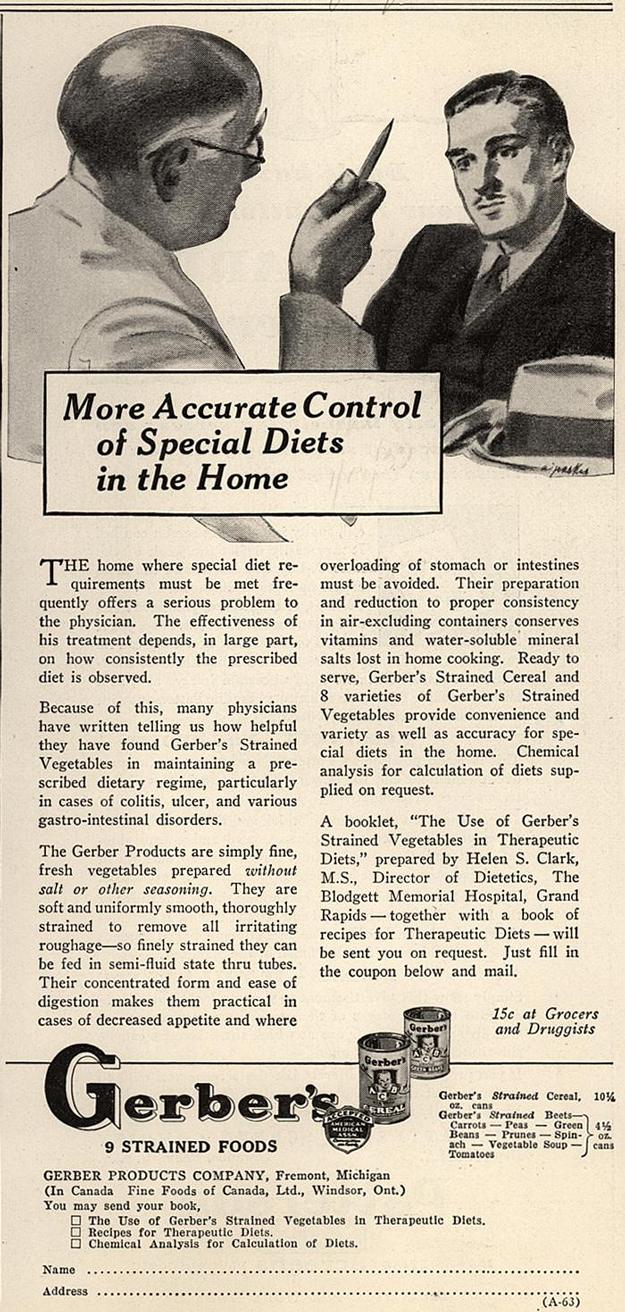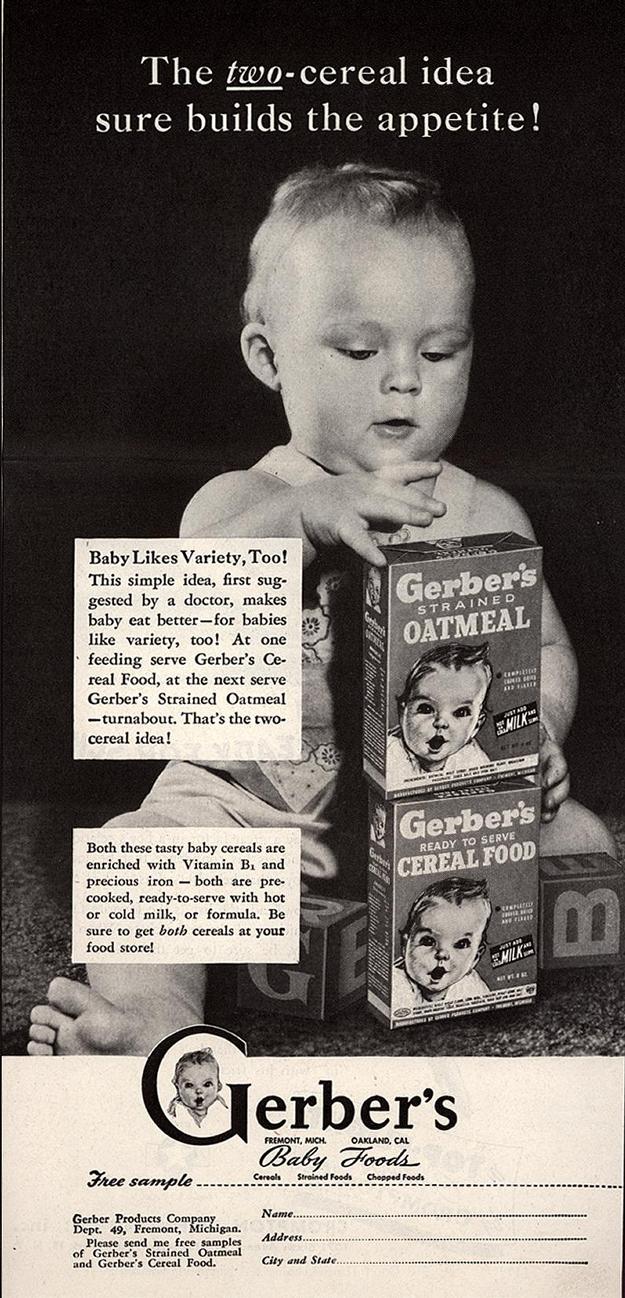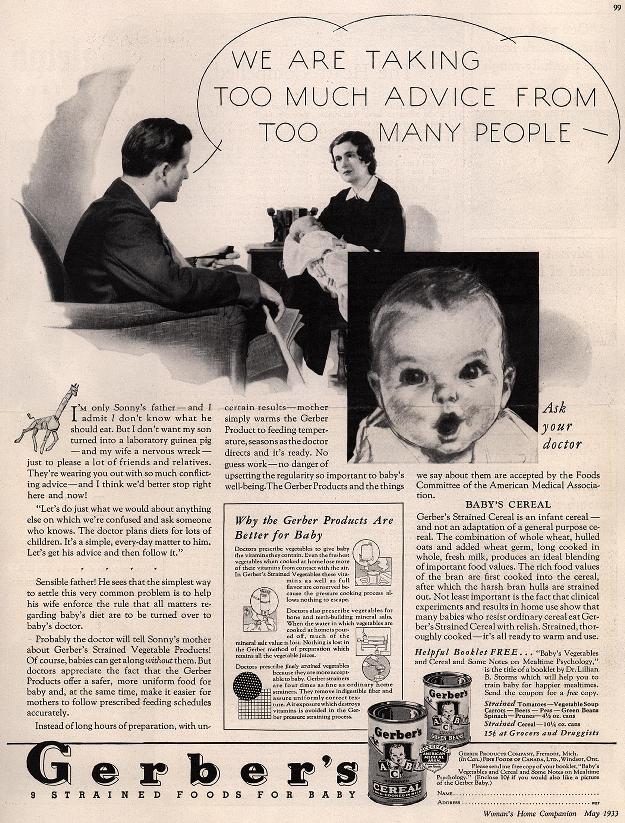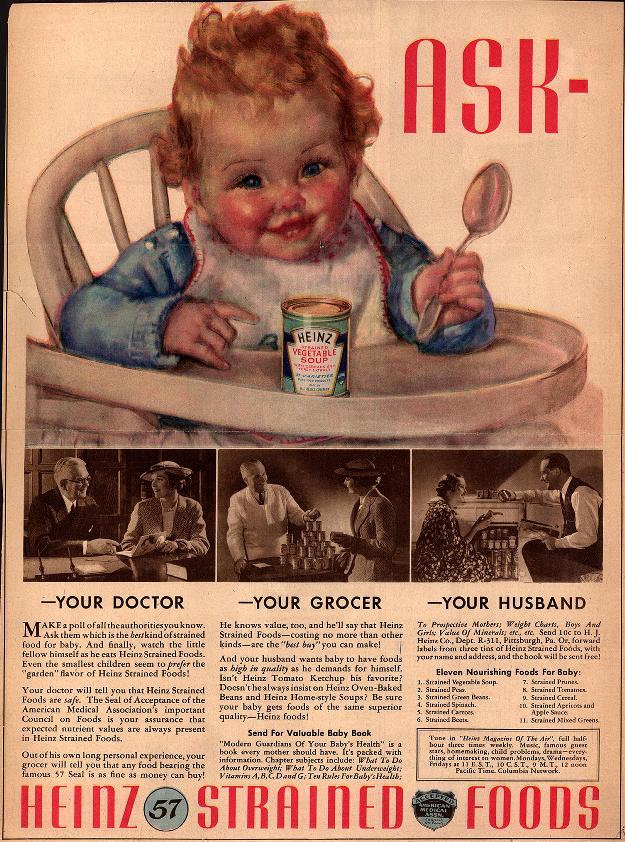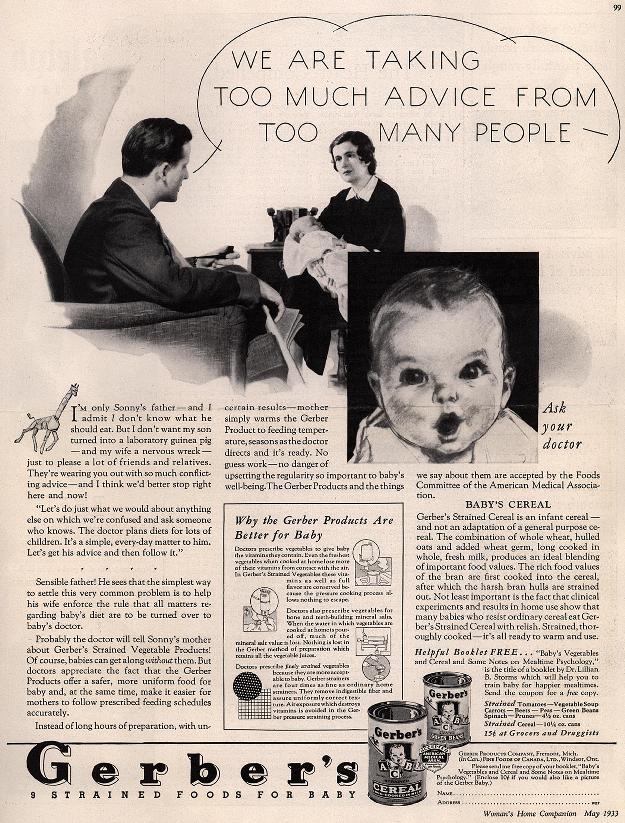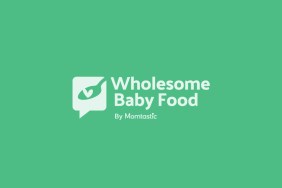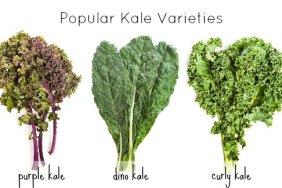In the late 1920′s, canned fruits and vegetables were gaining popularity as they became more affordable and offered a break from the work of preparing fresh foods. It was around 1928 that Fremont, Michigan cannery owner Dan Gerber’s wife Dorothy had an idea. Straining peas was becoming tiresome and her husband’s company canned fruits and vegetables for family consumption; why not create a line just for babies? This idea was a brilliant stroke of business genius that would “liberate” mothers from the kitchen and from the “tedious” work of scraping and straining vegetables for babies. The cannery began to focus its efforts solely on producing infant foods. Eventually, the Gerber company would gain a reputation for producing foods that were “better” for babies. This notion that Gerber’s foods were better gained traction and much success via massive marketing.
With the help of advertising agencies (conjure Mad Men here) and the “approval” and endorsement of the American Medical Association, pediatricians, doctors, and even the local grocer, parents soon came to believe that it was best to feed their babies canned (jarred now) foods. Mom couldn’t possibly prepare scientifically adequate and superior foods for her baby. And really, didn’t husbands need charming wives who were not tired from straining vegetables? I have to say that Gerber was not the only business to target mothers in particular. Many companies were also using a variety of “emotional” ploys; Beechnut, Heinz and even Libby were hiring ad agencies and cranking out these types of ads too.
One of the most disturbing of these advertising tactics was the marketing to let Mothers know that their 2 week old babies would benefit from solid foods. There is some speculation that the rush to introduce solid foods to babies as early as 2-3 weeks old took hold partly due to advertising; advertising that always bore the “approval” of pediatricians and/or the AMA.
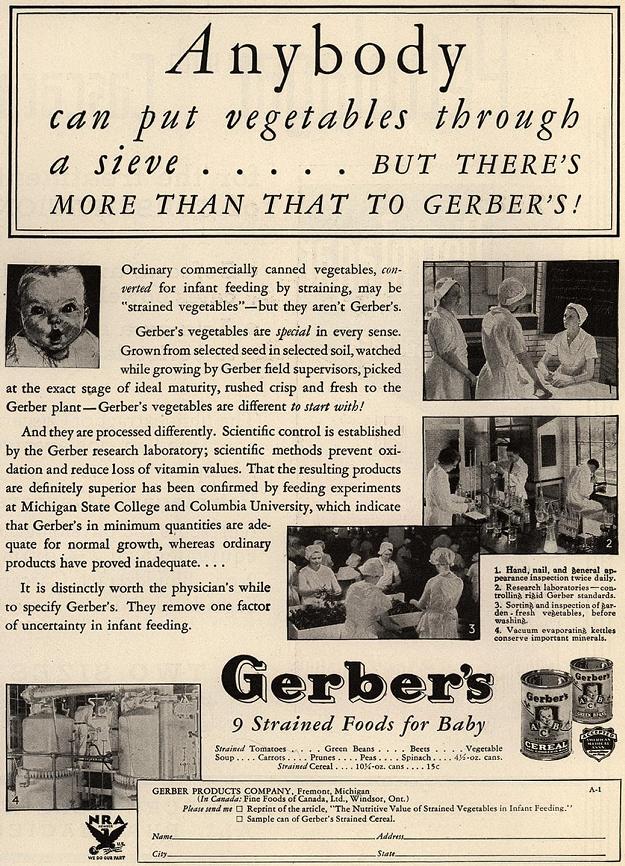 In the year 2012, I still hear parents say “You mean I can make my baby’s food in my kitchen? It’s safe to do that? Will she/he get enough vitamins and minerals and other nutrients?” It has been 80+ years since baby food companies began their ads that I feel, have sadly undermined a Mother’s confidence in her ability to properly feed her baby. Advertising can have such a strong impact on our self-confidence (think fashion magazines) in all aspects of our lives. As our children grow, they too are subjected to ads touting “Magically Delicious” foods that really Mom, these foods are healthy because they have “whole grains” or “natural” ingredients. Remember my post about the Liquid Gold?
In the year 2012, I still hear parents say “You mean I can make my baby’s food in my kitchen? It’s safe to do that? Will she/he get enough vitamins and minerals and other nutrients?” It has been 80+ years since baby food companies began their ads that I feel, have sadly undermined a Mother’s confidence in her ability to properly feed her baby. Advertising can have such a strong impact on our self-confidence (think fashion magazines) in all aspects of our lives. As our children grow, they too are subjected to ads touting “Magically Delicious” foods that really Mom, these foods are healthy because they have “whole grains” or “natural” ingredients. Remember my post about the Liquid Gold?
It is so amazing to know that we (parents and websites/bloggers), are starting to turn this all around and reject the magically delicious for the real and fresh. At the very least, baby food ads overtly stating that canned food is better have disappeared but the ads telling us we just don’t have time to cook baby’s foods are still around. One iconic baby food company has actually begun to label its line “purees”; I see that as a sign that homemade baby food making is stronger than ever!
I would love to hear your thoughts on these ads, from the 1930′s through the 1950′s, that have appeared in women’s magazines (and medical profession magazines) as well as in brochures given to nurses and doctors.
Many thanks to the Duke University Library, Digital Collections “Medicine and Madison Avenue“ Please check them out to see more advertisements; it’s really a lot of fun! They also have a section on the influence of ads regarding formula being better than breast milk.
